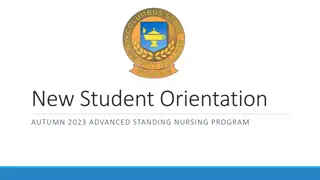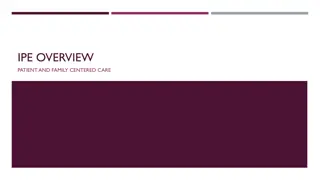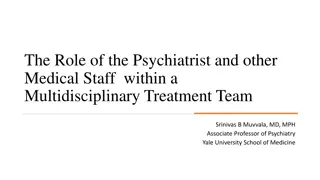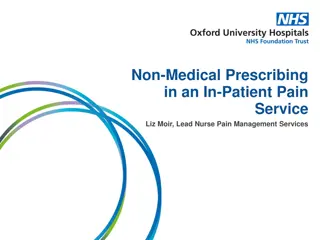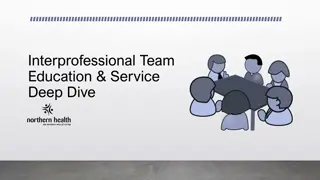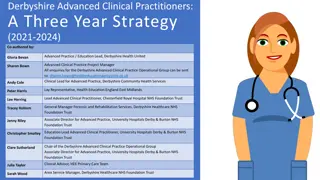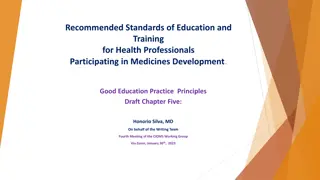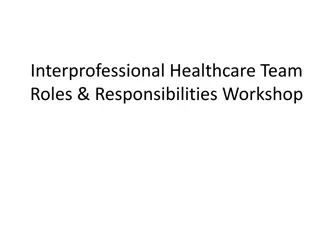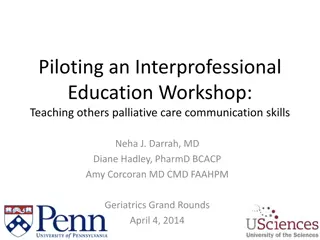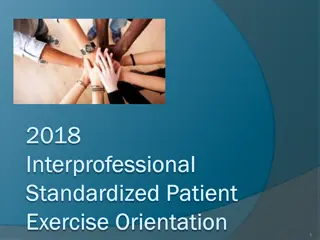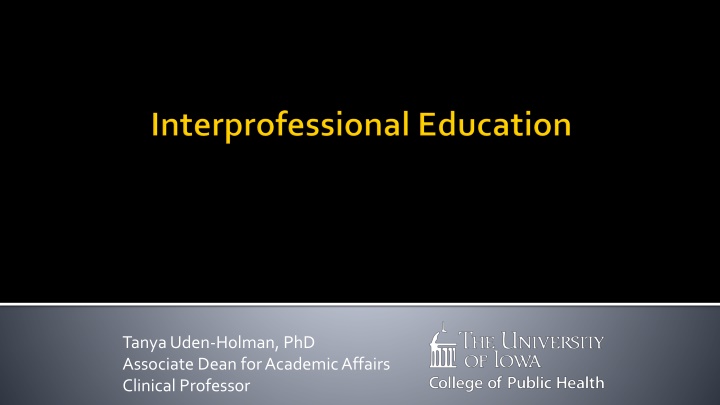
Interprofessional Education for Effective Collaboration
In a dynamic healthcare landscape, professionals from diverse backgrounds must come together to enhance health outcomes through collaborative practices. Interprofessional education fosters teamwork, communication, values, ethics, and roles/responsibilities, ultimately benefiting patients and populations. Embracing a multifaceted approach, such as case-based pedagogy and simulations, enriches learning experiences and prepares individuals for the complexities of modern healthcare.
Download Presentation

Please find below an Image/Link to download the presentation.
The content on the website is provided AS IS for your information and personal use only. It may not be sold, licensed, or shared on other websites without obtaining consent from the author. If you encounter any issues during the download, it is possible that the publisher has removed the file from their server.
You are allowed to download the files provided on this website for personal or commercial use, subject to the condition that they are used lawfully. All files are the property of their respective owners.
The content on the website is provided AS IS for your information and personal use only. It may not be sold, licensed, or shared on other websites without obtaining consent from the author.
E N D
Presentation Transcript
Tanya Uden-Holman, PhD Associate Dean for Academic Affairs Clinical Professor
Occurs when two or more professions learn with, from, and about each other to enable effective collaboration and improve health outcomes. Adapted from: World Health Organization, Framework for Action on Interprofessional Education and Collaborative Practice, 2010.
Values/Ethics Work with individuals of other professions to maintain a climate of mutual respect and shared values. Roles/Responsibilities Use the knowledge of one s own role and those of other professions to appropriately assess and address the healthcare needs of the patients and to promote and advance the health of populations.
Interprofessional Communication Communicate with patients, families, communities, and professionals in health and other fields in a responsive and responsible manner that supports a team approach to the promotion and maintenance of health and the prevention and treatment of disease. Teams/Teamwork Apply relationship-building values and the principles of team dynamics to perform effectively in different team roles to plan, deliver, and evaluate patient-/population-centered care and population health programs and policies that are safe, timely, efficient, effective, and equitable.
The increased emphasis on population health as well as on the promotion of health and the prevention of disease provide additional opportunities for public health students to be involved in IPE initiatives
No singular right approach Authenticity of learning opportunity critical IPEC Core Competencies should be foundational IPE learning opportunities should not be one and done IPE content can be delivered through multiple formats
Case-based pedagogy, team-based learning, competency- focused curriculum Simulations and table-top exercises Wide range of topics including: Emergency preparedness & response Patient safety Social justice, health disparities, & health equity Co-curricular activities
Shifting institutional culture from educational silos to students and faculty learning about, from and with each other with a common focus on competencies that transcend disciplinary boundaries Assuring that students are well-prepared to practice collaboratively in an evolving health care environment Promoting stronger relationships with peer institutions, professional associations and health systems in advancing IPE excellence Stimulating new scholarship and educational innovation

